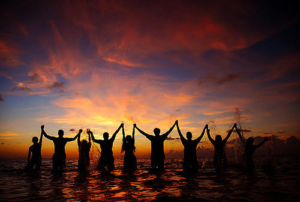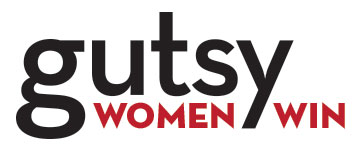Sawa Bona. I See You.
 Google image (source unknown)
Google image (source unknown)I traveled to London a few years ago to participate in a three-day workshop called “The Bigger Game.” I didn’t have any great revelations during that weekend, nor did I see a clear path for what I was to do and who I was becoming. But, it did give me some juicy material to think over and reflect on. And I knew something had shifted in the way I thought about myself, those in my life, and even humanity at large. I also knew something had shifted in the way I wanted to interact and be in the world. If anything, the workshop got me more in touch with my humanness and my recognition that I must live my life with intention and consciousness.
Those three days also brought me to a place where I realized it wasn’t all about me any longer. In my leadership coaching business, I discuss, in-depth with my clients, the importance of ‘servant’ leadership. This phrase was coined by Robert K. Greenleaf who was the founder of the modern Servant leadership movement and the Greenleaf Center for Servant Leadership. In 1970, he published his first essay, entitled “The Servant as Leader,” which introduced the term “servant leadership.”
The servant-leader is servant first. It begins with the natural feeling that one wants to serve, to serve first. Then conscious choice brings one to aspire to lead. That person is sharply different from one who is leader first, perhaps because of the need to assuage an unusual power drive or to acquire material possessions. For such, it will be a later choice to serve – after leadership is established. The leader-first and the servant-first are two extreme types. Between them there are shadings and blends that are part of the infinite variety of human nature.
The difference manifests itself in the care taken by the servant-first to make sure that other people’s highest priority needs are being served. The best test, and difficult to administer, is: do those served grow as persons? Do they, while being served, become healthier, wiser, freer, more autonomous, more likely themselves to become servants? And, what is the effect on the least privileged in society? Will they benefit or at least not be further deprived?
It can’t be all about you if you want to make a difference. You do not move in your world without coming in contact with others. You cannot better your world without bettering others, and vice versa. It’s that old adage “We’re in this together,” and the (workshop) reminded me of this and pushed me in the direction of “Don’t you forget it.” It was also a very strong affirmation that we belong to one another.
I was looking at the hunger that was waking up in me. And that hunger was to see more kindness in a world where I believe people are no longer as kind to one another as they once were. I have always had a strong feeling that all people must be seen and heard and know they make a difference. This, ‘seeing’ and ‘hearing’ others is one of my definitions of kindness.
How many times have we asked someone “How are you?” hoping that we don’t get more than a one-word response such as, “Fine” or “Good,” and just continue to walk on and not stop to acknowledge the person asking the question just so we’ll be able to continue with whatever we were doing with minimal disruption?
 “Community” by NotSoGood Photography.
“Community” by NotSoGood Photography.How does it make you feel to not be acknowledged or to be brusquely brushed off?
There is a depth of validation for each other as human beings that is missing for me in our current world.
I have often wondered how other cultures greet each other. I found that among the tribes of northern KwaZulu-Natal in South Africa, the most common greeting that is equivalent to 'hello' in English is the expression “Sawa Bona.” It means, “I see you,” as if to say, “I respect and acknowledge you for who you are.” If you are a member of one of the tribes you might reply by saying, “Sikbona,” which means, “I am here,” as if to say, “when you see me, you bring me into existence.” The order of the exchange is important: until you see me I do not exist. It's as if, when you see me, you bring me into existence.
It’s that connection that is missing. That heart-to-heart, “I see you” connection. That validation that we exist.
The above is an excerpt from my book “Gutsy Women Win: How to Get Gutsy and Get Going.”

0 comments
Leave a comment
Please log in or register to post a comment